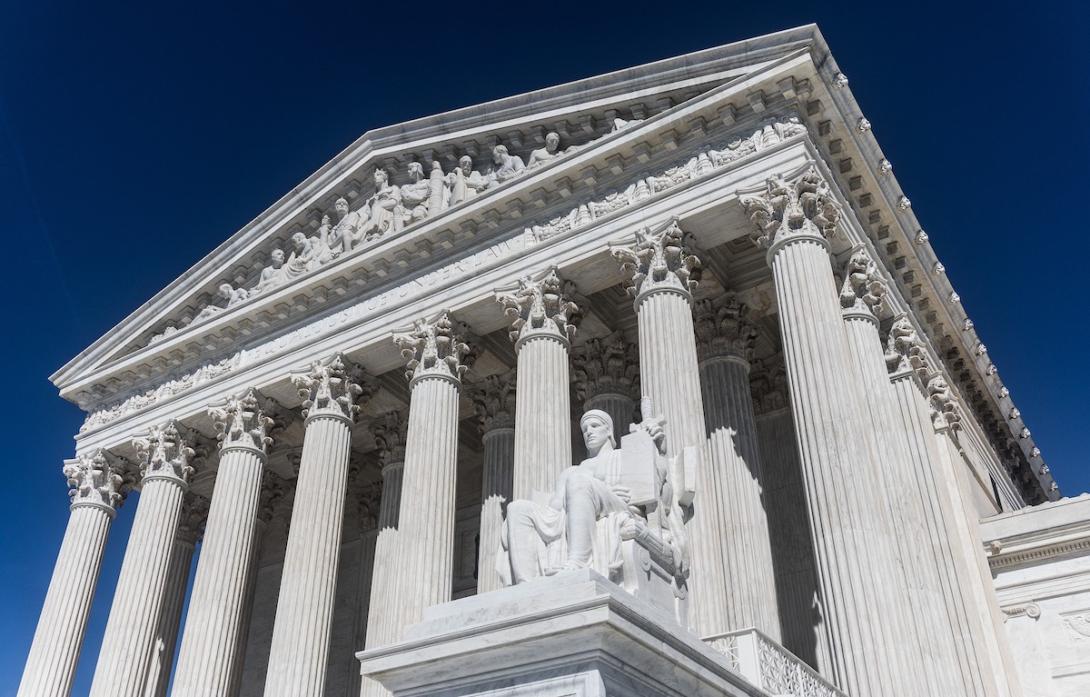
The Supreme Court on Monday issued a ruling that lifted the injunction on the U.S. Department of Homeland Security’s public charge rule – a rule that makes it more difficult for immigrants to get green cards. Federal appeals courts had previously issued injunctions blocking the rule. Monday's ruling means the policy can go into effect in Oregon and every state, except for Illinois which is covered by a separate injunction. The lawsuits are not over, but the Supreme Court’s decision allows the rule to go into effect during the litigation.
The new public charge rule expands the list of benefits that the federal government may consider when determining whether someone is a public charge, which would make it more difficult for them to get a green card. These benefits include:
- Non-emergency Oregon Health Plan (i.e., Medicaid) coverage for non-pregnant adults 21 and older.
- Medicaid-funded long-term care
- Supplemental Nutrition Assistance Program (SNAP) or foodFederal, state or local cash assistance programs. This includes:
- Supplemental Security Income (SSI) and
- Temporary Assistance for Needy Families (TANF).
- Section 8 rental assistance (i.e., housing choice vouchers).
- Project-based Section 8 housing and subsidized housing.
The public charge rule does not apply to many federal and state programs, including but not limited to:
- Oregon Health Plan coverage for youth younger than 21 (i.e., Medicaid and the Children’s Health Insurance Program, or CHIP).
- Oregon Health Plan coverage for people who are pregnant including 60 days after giving birth (i.e., Medicaid, Citizen-Alien Waived Emergent Medical (CAWEM) Plus, etc.).
- Oregon MothersCare (OMC) program.
- Emergency Oregon Health Plan coverage for people of all ages (i.e., CAWEM).
- Oregon’s Cover All Kids program.
- Special education services funded by the Individuals with Disabilities Education Act (IDEA) that Medicaid covers.
- Early Head Start and Head Start/Oregon PreKindergarten.
- Employment Related Day-Care child-care reimbursement.
- School based health services for school-aged children.
- Free and reduced School Lunch Program (exception: the new rule would consider this if there was a referral to this program through SNAP).
- Women, Infants, and Children (WIC) supplemental nutrition program.
- Commercial health insurance premium subsidies through Oregon’s Health Insurance Marketplace.
- Oregon Food Bank programs and services.
- Older Americans Act (OAA) programs.
- State-funded programs to aid older adults and people with disabilities (e.g., Oregon Project Independence).
- Medicare Part D Low-Income Subsidy (LIS).
- Many other health and social services programs not listed here.
The Oregon Health Authority is the state agency responsible for protecting the health of all 4 million people living in Oregon. In a previous statement issued after the original federal rule was announced, the Oregon Health Authority said, "This rule is in direct conflict with our agency’s mission which is to help people and communities achieve optimum physical, mental and social well-being and improve access to quality, affordable health care."
OHA encourages anyone who has questions or concerns about how public charge may affect them or members of their family to seek counsel from a qualified immigration attorney.
- Call the Oregon Law Center-Legal Aid Services of Oregon Public Benefits Hotline at 800-520-5292.
- Find an immigration attorney at Oregon Immigration Resource.
